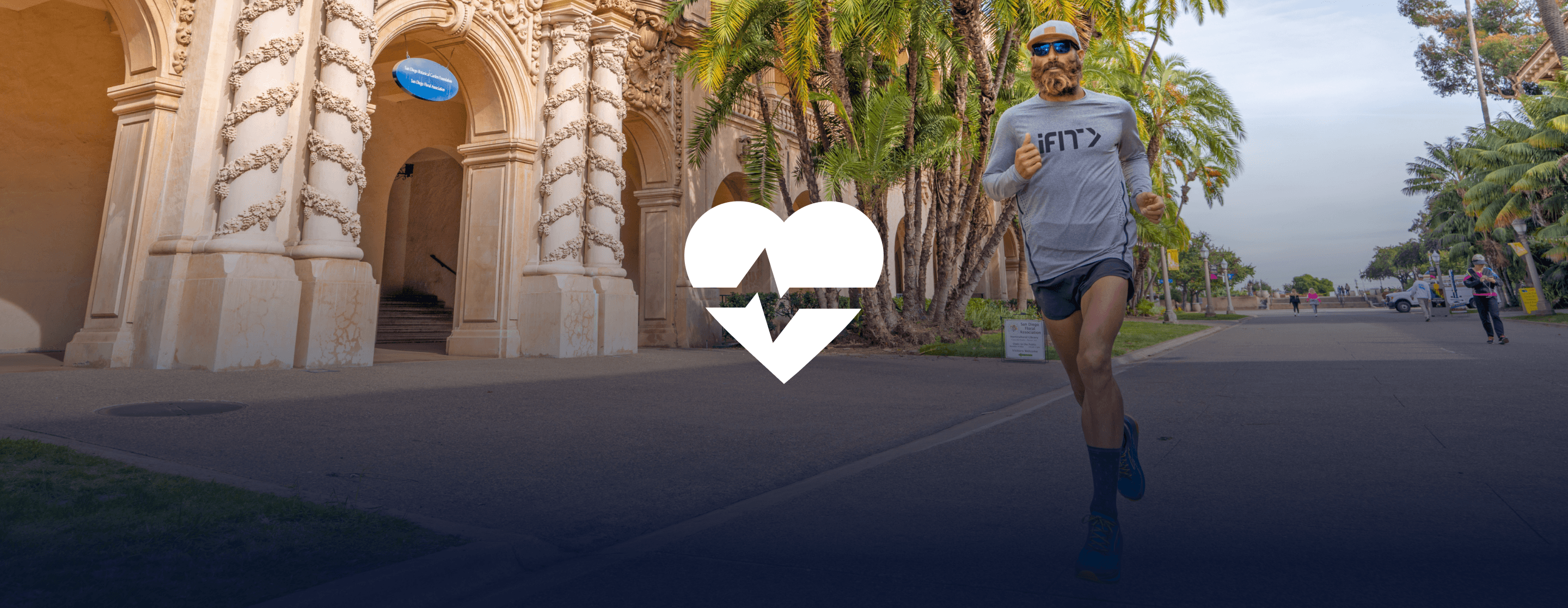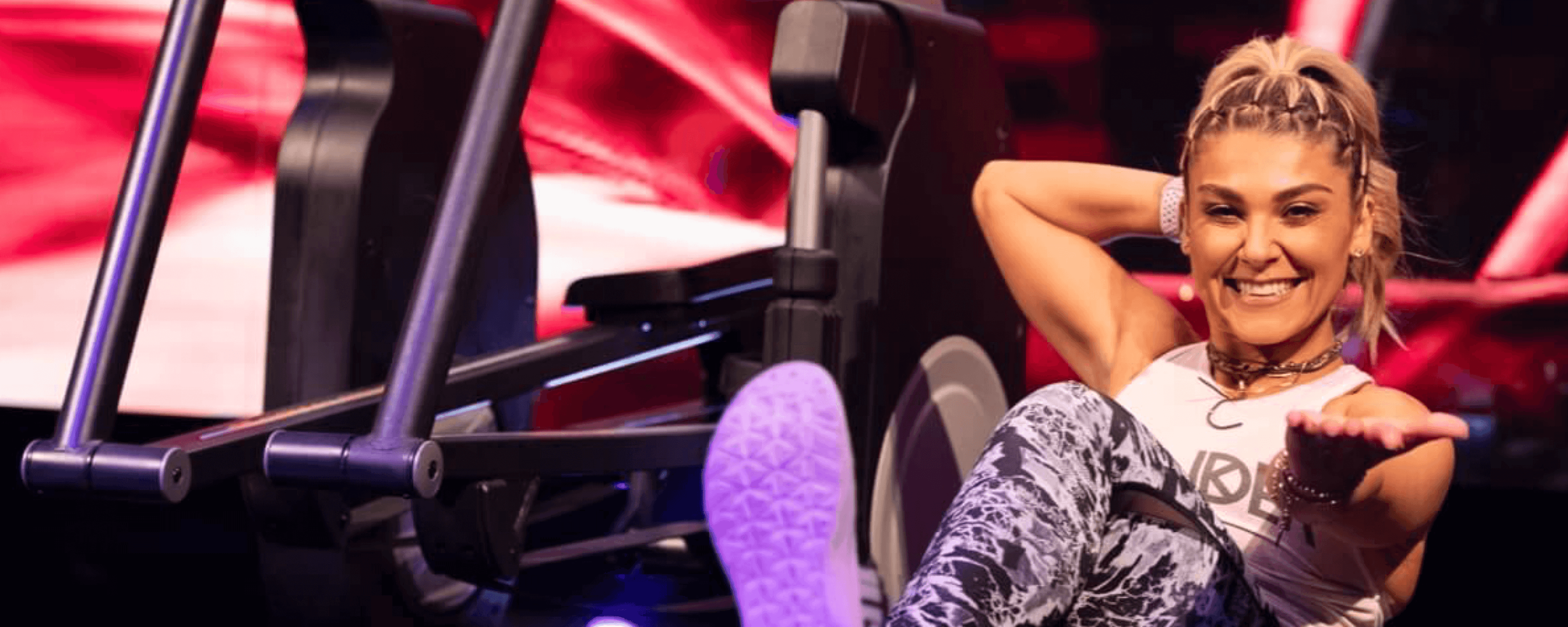
Run Stronger, Run Longer: iFIT Trainers Share Marathon Tips
The anticipation for the Boston Marathon® Presented by Bank of America and the TCS London Marathon is palpable. Whether you’re a seasoned marathoner or gearing up for your first 26.2 miles, preparation is key.
To give you the inside scoop, we’ve sat down with some of our iFIT Trainers for an exclusive Q&A. From training strategies to mental preparation, get ready to elevate your running game with insider tips from those who know it best.
As we gear up for Boston and London, what advice would you give our members preparing for a marathon?

“Marathoning isn't just about fitness — it’s also about pacing and nutrition. To finish strong, don’t start too fast, and be sure to fuel and hydrate well. Remember, fatigue may signal the need for fuel. Happy running!”
Be sure to join Leah’s Movement and Mobility for Runners Series, available on the iFIT app, to improve flexibility, strength, and overall well-being.

"Allow yourself permission to feel the joy and satisfaction that comes with preparing for a race. Remember that the race is simply the celebration of all the hard work you’ve put in along the way, in the days, weeks, and months leading up to that massive party where you get to pin on a bib and celebrate the gift of movement. Deep breathe. Smile. You’ve got this.”

“Focus on gradual progression in your training. Consistency is key. Build up your mileage and intensity gradually to avoid overtraining and reduce the risk of injuries. Remember to listen to your body, stay well-nourished, and prioritize recovery. Best of luck!”

“One of the biggest pieces of training doesn’t have to do with “running” at all. That’s because whether we’re talking a mile or a marathon, it’s mostly mental. So, even devoting five minutes a day to a mindfulness practice, a gratitude moment, or even simply sitting in silence is a small but crucial building block of the mental and emotional reserve you’ll need to draw on during your performance.”

“Set appropriate goals, focusing on why they are your goals. If it's your first marathon, your goal should be to finish. Your first marathon won't be your fastest. When you’re solely focused on finishing, it allows you to train smarter and be more present on race day, so you can enjoy the fact that you’re running 26.2 miles. If it’s not your first marathon, set a time goal. Find your true “why,” and you’ll be smiling (or crying happy tears) at the finish line. Have a great race!”
As we count down the days to London and Boston, relive the excitement of our London and Boston Marathon Series, and let us help you cross that finish line with a new personal best!
Disclaimer: This blog post is not intended to replace the advice of a medical professional. The above information should not be used to diagnose, treat, or prevent any disease or medical condition. Please consult your doctor before making any changes to your diet, sleep methods, daily activity, or fitness routine. iFIT assumes no responsibility for any personal injury or damage sustained by any recommendations, opinions, or advice given in this article. Always follow the safety precautions included in the owner’s manual of your fitness equipment.
You might also like
.jpg&w=3840&q=75)
Trainer Games Complete Collection: Every Workout. Every Episode. One Epic Experience.
Experience the full intensity of Trainer Games in one place. The Trainer Games Complete Collection brings every episode, workout, and behind-the-scenes moment together inside the iFIT fitness app, so you can train, watch, and stay inspired alongside elite trainers from start to finish.
February 16, 2026

Explore Heart Rate Training with the ActivePulse™ Training Series
When it comes to a customized, interactive workout experience, it doesn’t get better than heart rate training. Our new, groundbreaking feature called ActivePulse uses your heart rate to personalize your workout. It’s the newest way to experience an interactive, personalized experience with iFIT. What is ActivePulse? ActivePulse is iFIT’s first heart rate training feature, designed for users who want to get the most out of their workouts. With ActivePulse turned on and a Bluetooth®-enabled heart rate monitor connected to your treadmill, the intensity of your workout will be automatically adjusted, based on your target heart rate zone. You will automatically be sped up or slowed down in order to maintain the ideal heart rate zone for your workout. This includes recovery, speed, or strength runs! Ready to explore ActivePulse? Try the ActivePulse Training Series! If you’re ready to try this new feature and put heart rate training to work for you, join the ActivePulse Training Series that covers all the basics of ActivePulse and heart rate training as you explore beautiful San Diego. Filmed in 2019, this six-part program is led by iFIT Trainer Tommy Rivs Puzey. Together, you’ll run through San Diego as you learn how to use the ActivePulse feature. You’ll also learn about the five heart rate zones, cardiac drift, and how your heart responds to stress. As you explore different zones, Tommy will continue to adjust your workout in order to set the perfect intensity for your fitness level. Disclaimer: This blog post is not intended to replace the advice of a medical professional. The above information should not be used to diagnose, treat, or prevent any disease or medical condition. Please consult your doctor before making any changes to your diet, sleep methods, daily activity, or fitness routine. iFIT assumes no responsibility for any personal injury or damage sustained by any recommendations, opinions, or advice given in this article. Always follow the safety precautions included in the owner’s manual of your fitness equipment.
March 30, 2021

iFit Trainer Anja Garcia's Favorite Core Exercises
Core strength is an essential component of your well-being. For many, abdominal exercises are incorporated into a fitness routine for the sole purpose of acquiring that sought-after six pack. The real benefit, however, comes in the form of improved posture, reduced risk of sports-related injuries, improved athletic performance, reduced back pain, etc. iFit Trainer Anja Garcia regularly incorporates ab exercises into her workout routine. We asked her to share five of her favorite core strengthening workouts to target and tone your abs. We hope you'll give them a try! Bear hops in hand and elbow plank Muscles engaged: entire core and lower body with the frog hop Keep your shoulders stacked inline with your wrists to begin, then align with your elbows when dropping down to forearm plank. Make your neck straight and inline with the rest of your body to avoid extra stress on your neck—try looking forward about a six inches to a foot in front of your fingertips to keep your neck straight. Think of pushing your belly button up into your stomach to keep your back nice and straight. No high or sagging hips! A straight back will keep your core engaged. Avoid rocking your hips back and forth as you go from straight arm plank to forearm plank. Sometimes, widening your stance will help limit the amount of swaying. Beast bird dog Muscles engaged: entire core Added benefits: Not only will it help straighten your core, but it's a great way to help challenge your balance and stability! Keep your neck straight and inline with the rest of your body to avoid extra stress on your neck—try looking forward about a six inches to a foot in front of your fingertips to keep your neck straight. Your feet should be wider than shoulder width apart. Scissor switches Muscles engaged: entire core, but focused mostly on your lower abs and obliques Keep your hands tucked behind your head with your elbows wide. Look upward and straight ahead to keep your neck in line with your back. Try your best to avoid tucking your chin. Pro tip: Find a spot to look at on the ceiling. For more of a challenge, keep your legs nice and straight. To modify, keep a bend in your knees. Side plank wrap with leg lift Muscles engaged: entire core, targeting the obliques as you thread the needle (pull your arm through) Make sure your shoulder is in a straight line with your elbow and perpendicular to the floor. Keep your hips lifted up high and try to avoid sagging. Stack one leg on top of the other (to increase stability, you can bring the top leg in front of your bottom, supporting leg). Boat pose tuck up with v-extension Muscles engaged: entire core, targeting the lower core with the leg raise Keep your hands tucked behind your head with elbows wide. Look upward and straight ahead to keep your neck in line with your back. Try your best to avoid tucking your chin. Pro tip: Find a spot to look at on the ceiling. Keep your back nice and straight. We hope you'll give these challenging and fun abdominal exercises a try. Remember—the key to achieving all the amazing benefits that come with a strong core is proper form and consistency. Make sure to incorporate these ab moves into your workouts regularly, while still remaining mindful of your form.
May 1, 2019